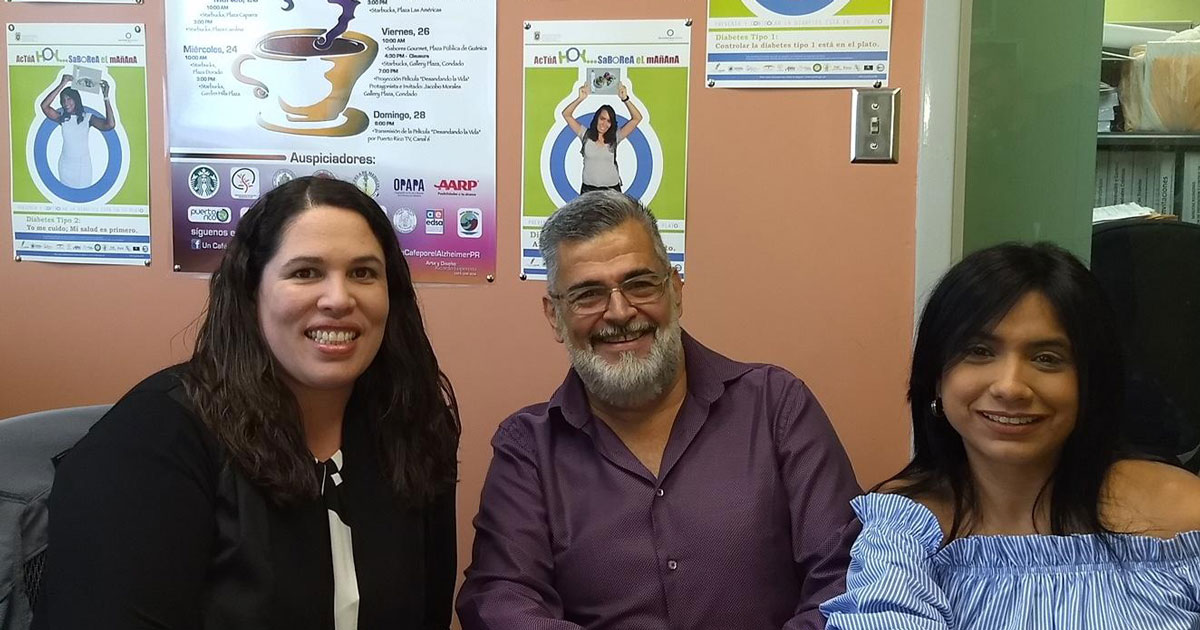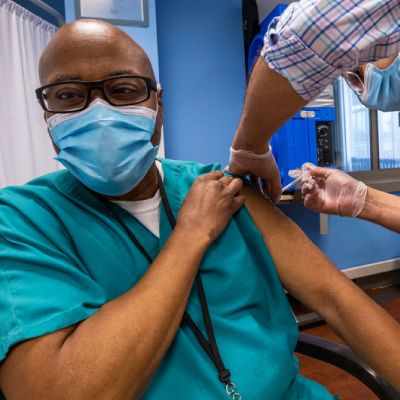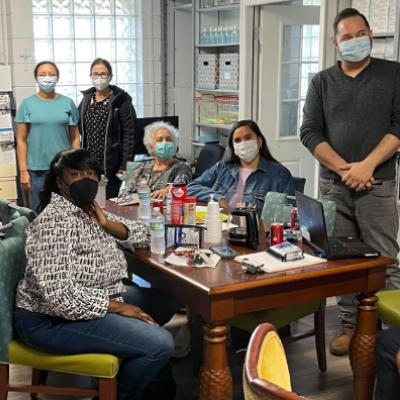- Who We Are
- Clinician Employment
- Publications
- Witness to Witness (W2W)
- El Premio Kugel & Zuroweste a la Justicia en la Salud
- Your Voice Matters: Photovoice Project
Tue, 03/06/2018 | by Alyssa Finley


Jessica, Leonardo and Cinthia. The Puerto RIco Diabetes team from PR Health Department
This year, Migrant Clinicians Network’s ECHO series on diabetes has brought together dozens of health centers’ community health workers (CHWs) to share tools and tactics, learn about the most recent research, and network to bring down A1C numbers around the country. Through this series, sponsored by the Health Resources and Services Administration (HRSA), we at MCN have had the great pleasure of working with a variety of experts who have helped to make these presentations and in-depth conversations possible. In some of our most recent sessions, we worked with a solid team of experts from the Department of Health in Puerto Rico. Together, they manage different aspects of chronic diseases for the island.
Jessica Irizarry Ramos, MS, PhD, discussed the psychological and mental changes in people living with diabetes that may interfere with the treatment and follow-up, and how CHWs can identify it. Jessica has worked for over eight years as an epidemiologist and evaluator in different projects and programs. She has also served as director of the Division of Prevention and Control of Chronic Diseases of the Puerto Rico Department of Health from 2013 to 2017.
Cinthia Santiago Díaz LND, CMCP, CMCV, explored how CHWs can help patients prepare during emergencies and how they need to adapt their diet during disasters using Hurricane Maria as an example. Cinthia has worked for over 10 years as a nutritionist and health communicator in the Division for the Prevention and Control of Chronic Diseases of the Auxiliar Secretariat of Health Promotion, Puerto Rico Department of Health.
Both Cinthia and Jessica provided real-life accounts of how social determinants of health hinder adherence to treatment among patients with diabetes, and how Puerto Rico has handled this serious concern after Maria. “Obesogenic environments,” the factors in our environment that support being obese, “are a common trend in schools and workplaces and do not help at all for any person, but especially not for a patient living with diabetes,” said Alma Galván, MCN’s Senior Program Manager and coordinator of the series.
In our next ECHO webinar Leonardo Perez Rivera, MPHE, program coordinator for the Puerto Rico Department of Health’s Program for the Prevention and Control of Diabetes will talk about successful Techniques of Self-Management and Control of diabetes among children, adults, and pregnant women. He has more than 25 years of experience as a public health educator and is also certified as a lead trainer from the University of Illinois and a Master Trainer from the University of Stanford.
Our organization has been so pleased to work with these experts in their field and to share the information gathered with the aim to target health promoters, community outreach workers, and case managers who directly work with patients in the detection, treatment, self-management, and prevention of diabetes and hypertension.
Learn more about the ECHO model and MCN’s projects at http://www.migrantclinician.org/project-echo.
Like what you see? Amplify our collective voice with a contribution.
Got some good news to share? Contact us on our social media pages above.
Return to the main blog page or sign up for blog updates here.







